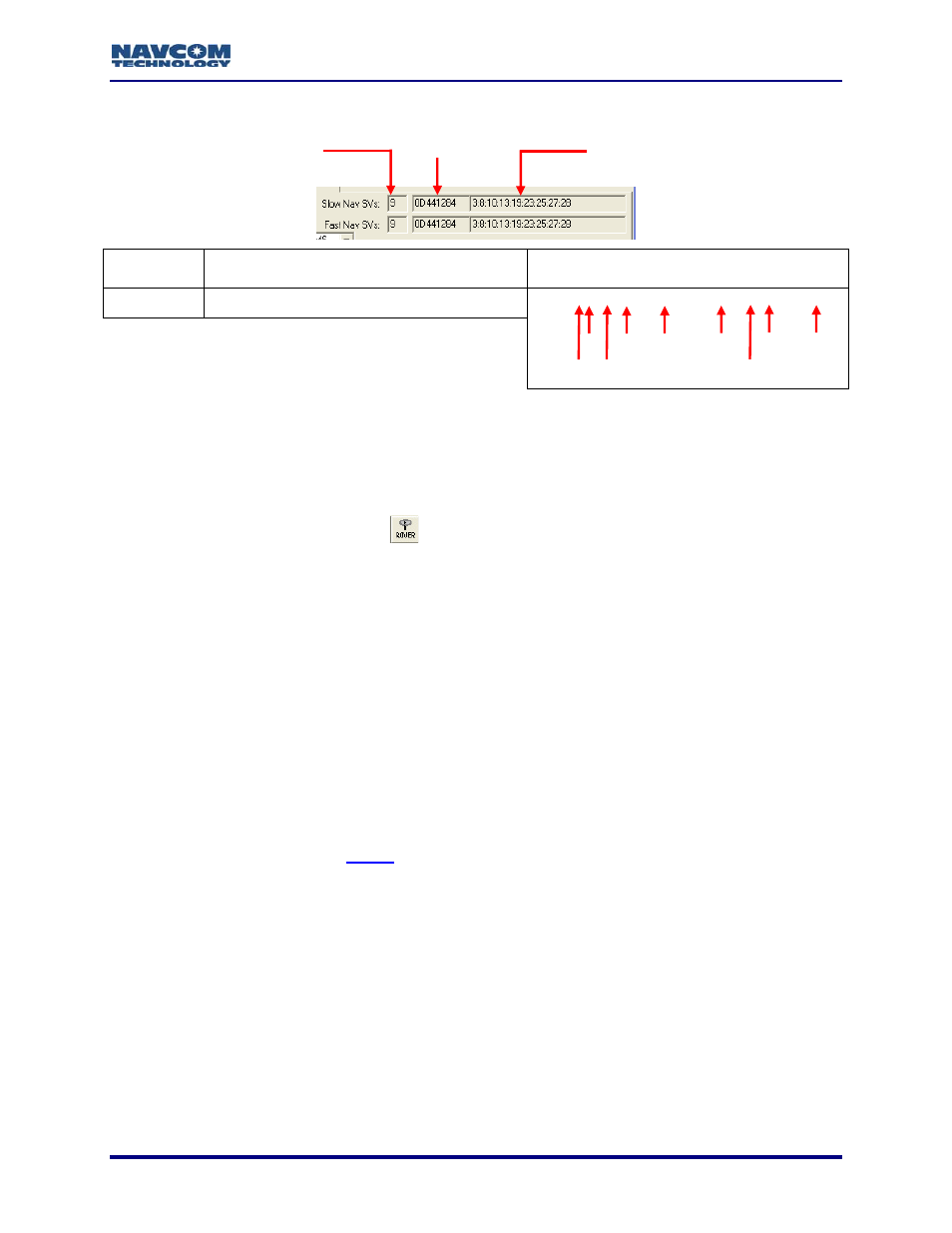NavCom StarUtil-2110 Rev.B User Manual
Page 37

StarUtil-2110 User Guide – Rev. B
7. Slow and Fast Nav SVs:
4-35
Number of SVs Tracked
Hex of SV IDs
IDs of SVs Tracked
Hex
Binary
IDs of SVs Tracked
0D441284 00001101010001000001001010000100
00001101010001000001001010000100
1
27
10
23
00
19
0000
13
010
8
0000
3
00
28
0
25
2300190000130
10
80000300
8. Velocity: The vectors for satellite velocity.
9. Ground Speed and Track: The speed over ground and direction of travel (true, not
magnetic).
10. Max dGPS age: The maximum amount of time in seconds for all received corrections in the
current position record. Click the
icon on the toolbar to set the Max dGPS age on the
Rover / Navigation & Tracking Setup window (see Figure 8). The displayed time must be
within the max dGPS age limit, which is 1200 seconds. The default max dGPS age limit is
300 seconds.
11. dGPS mode: The current dGPS navigation mode. The possible modes are:
0: Non-differential
1: RTCM type 1 and 9 code
2: WAAS code single
6: RTG single
12. FOM: The DOP Figure Of Merit is the estimated uncertainty in the navigation solution. FOM
is the same as the One sigma error estimate. (Refer to the SF-2110 Technical Reference
Manual)
13. Adjust vertical (height): Indicates whether or not there is a bias adjustment value for the
antenna model in use (see
14. DOP: Dilution of Precision. A class of measures of the magnitude of error in GPS position
fixes due to the orientation of the GPS satellites with respect to the GPS receiver. There are
several DOPs to measure different components of the error: GDOP (Position and Time),
PDOP (Dimensional Position), HDOP (Horizontal Position), VDOP (Vertical Position), and
TDOP. The maximum PDOP value is 25.5.
